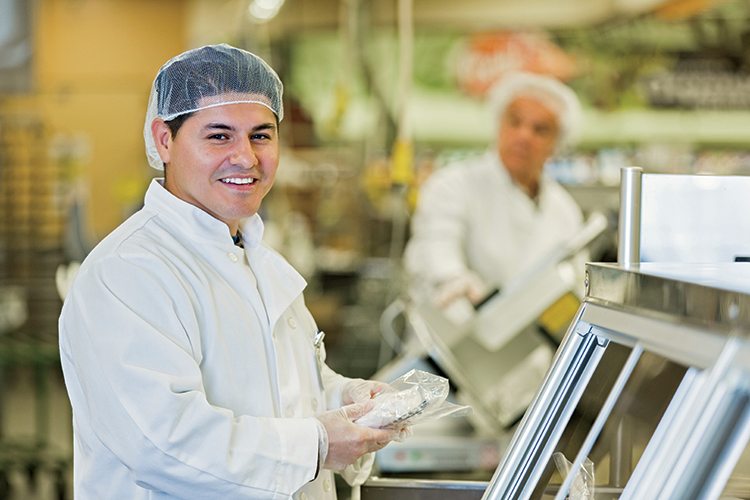Home > Missouri > Missouri Farm to Table > Ensuring Food Safety in Missouri
Ensuring Food Safety in Missouri
 Missouri farmers and ranchers know food safety comes first and that establishing safeguards is the right thing to do. Plus, it just makes good business sense.
Missouri farmers and ranchers know food safety comes first and that establishing safeguards is the right thing to do. Plus, it just makes good business sense.
“Maintaining food safety practices and having products verified by an outside organization helps us market our products,” says Rusty Lee, a major vegetable producer at Lee Farms, located in eastern-central Missouri. He sells a variety of produce, both wholesale and retail. “It ensures that we’re doing things right.” He adds, “There are multiple reasons why you should be so conscious of food safety, and I can’t think of any reason why you shouldn’t.”
Methods That Work
While cooperation and assertiveness from Lee and other producers across the state are key to ensuring food products of all kinds are safe for public consumption, the responsibility is also a top priority of the Missouri Department of Agriculture. The department uses many methods to accomplish this, including outreach, training, inspections and regulations. Missouri, in fact, has already adopted many of the requirements set forth by the FDA’s Food Safety Modernization Act effective 2016-17.
Five specific programs – Dairy, Fresh Fruit and Vegetable Inspection, Meat and Poultry Inspection, Poultry Health and Improvement and Feed and Seed
Inspection – work to prevent food safety issues, such as foodborne illnesses and disease. The department also has in its food safety tool bag the Missouri Egg Law, a farmers market handbook and a concentration on training opportunities.
The Missouri Meat and Poultry Inspection Program, for instance, works in cooperation with the department’s Division of Animal Health and the USDA’s Food Safety Inspection Service to ensure that the commercial supply of meat and poultry products within the state are safe, wholesome, accurately labeled and secure.
It provides inspection and guidance to Missouri meat and poultry processors.
![food safety [infographic]](https://eadn-wc01-4177395.nxedge.io/wp-content/uploads/2020/05/Screen-Shot-2016-07-22-at-2.17.43-PM.jpg) Eyes and Ears on the Ground
Eyes and Ears on the Ground
The same is true of the Missouri State Milk Board (MSMB). In addition to the approximately
250 grade A farms its staff inspects, the MSMB also uses the St. Louis County Health Department for about 500 farm inspections on the eastern side of the state and the Springfield-Greene County Health Departments for another 150 farms.
“Milk is the most sampled and regulated food that consumers can buy,” says Gene Wiseman, executive secretary for MSMB. “It’s tested at every stage and every level, from production through processing, to ensure a quality product that’s shelf- ready for the consumer.”
He says the milk board visits every farm to make sure sanitation and cleanliness practices are being followed, and that the milk coming from those farms is of high quality going into process plants.
“We’re in all processing plants as well, and we work very closely with both the USDA and the FDA,” Wiseman says. “We are their eyes and ears on the ground in Missouri.”
Of course, it helps government officials when individual farms provide their own internal eyes and ears toward ensuring food safety. That’s the way Lee and his family-owned Lee Farms have done things for the past few years.
“We’re focusing on worker hygiene, training, water quality, soil management and proper storage conditions, such as temperature and humidity for our veggies,” he says. “We try to maintain a cold chain through distribution. We do all our record keeping of all of our fertilizers, pesticides and water tests. We even have standard operating procedures for dealing with wildlife and signs of them in the field. The list is long.”



